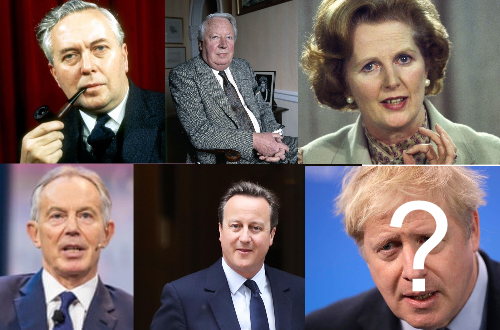You might have noticed: there has been an argument going on about the robustness of the centre Left on the Islamist issue. Its most recent manifestation is the spat around a Nick Cohen column, in which Shiraz Maher is quoted as suggesting that the Fabians and the IPPR wouldn’t publish a study with a strong anti-Islamist position. That suggestion horrified Sunder K, and suddenly it was bare knuckles behind the bike shed time.
Although the argument is ostensibly about whether the controversial characterisation of those two centre Left organisations was fair or not, what underpins it is a deeper argument about what sort of ‘engagement’ with Islamist groups ought to take place. This is, after all, the debate at the heart of Contest 2. It is a hot potato.
On one side of the divide, there are those who take the view that ‘moderate’ Islamists are potential partners for the Left. There is a pretty live argument as to what ‘moderate’ means in this context. For example, Daud Abdullah – and a whole bunch of other signatories of the Istanbul Declaration – were thought to be moderate until a couple of weeks ago. There is also a view on part of the Left, and indeed the Right – encouraged by groups like Conflicts Forum – that Islamists should best be regarded as engaged in a series of legitimate liberation struggles, which ought to be ‘recognised’. It follows from this, that any opposition to Islamist politics is a sinister Zionist plot.
On the other side of the divide are those who argue for consistent standards: don’t partner with Islamist groups, if you wouldn’t partner with non-Islamist groups with similar politics. Don’t make excuses for extremism.
Asim Siddiqui raised these issues again, in a thoughtful piece on yesterday’s Comment is Free:
In a response to a recent letter in the Observer signed by a number of liberal Muslims criticising Cohen (that I also signed), Martin Bright discounted the views of fellow signatories Yahya Birt and Dilwar Hussain because of their association with the Islamic Foundation, despite considering them to be “sweet”. So notwithstanding their sweetness (read liberalness), just by being associated with a foundation founded by an Islamist more than 30 years ago is enough to dismiss their arguments – even if that institution encourages diverse views that challenge its old school Islamism?
Holding institutions hostage to their past and ignoring direction of travel and progress doesn’t suggest much of an ear to the ground. Meanwhile if you spend your entire student years as a rightwing radical Islamist and then leave it to come out with yet more rightwing statements doesn’t make you liberal-left. Rightwing views on multiculturalism, immigration and civil liberties remain rightwing even if they come from Muslims of immigrant stock. If it walks like a duck and quacks like a duck then more than likely you are engaging with a duck.
The words “rightwing statements” is linked to an article by Ed Husain.
Now, I know that the Guardian sometimes take your copy and link it – without your knowledge – to articles of their own choosing. For example, Hazel Blears recently wrote a piece in which there was a link to an article on Harry’s Place: which sent MPACuk into a frenzy of fury and paranoia. Imagine how freaked out they must have been when they realised that Daud Abdullah also apparently “linked” to the same Harry’s Place article!
So, I’ll assume that Asim didn’t intend to imply that Ed’s article – which focused on anti-Al Qaeda strategy, and also generally criticised bridge building with Islamists – was “Right wing”. He can’t have. Indeed, Asim’s definition of “Islamism”:
“someone seeking political power to impose, to varying degrees, their interpretation of Islam on society”
encapsulates perfectly, the politics against which liberalism defines itself. Liberalism had its roots in anti-clericalism, religious non-conformism, and secularism. Ed Husain is an absolute straight-down-the-line liberal social democrat. That’s why he opposes Islamism. So, I’ll assume that Asim didn’t intend to imply that Ed’s article – which focused on anti-Al Qaeda strategy, and also generally criticised bridge building with Islamists – was “Right wing”.
There are certainly those who do think that Islamist politics is compatible with liberalism or social democracy. That is a profound category error. They are diametrically opposed.
There’s another point, well made by Martin Bright:
My other serious objection to the mini-mob who signed the Observer letter is that they were prepared to keep company with individuals who have links to institutions set up in Britain specifically to promote the right-wing Islamist party Jamaat-i-Islami (a minority force in Pakistan and Bangladesh for too long given credibilty by ministers in Britain). Asim Sidddiqui of the respected City Circle Muslim discussion group takes issue with this point in his Guardian blog. His point his that Dilwar Hussein and Yahya Birt – both alumni of Leicester’s Islamist Islamic Foundation – should not be judged by the institution’s past links to Jamaat-i-Islami.
“Just by being associated with a foundation founded by an Islamist more than 30 years ago is enough to dismiss their arguments – even if that institution encourages diverse views that challenge its old school Islamism?,” says Siddiqui. “Holding institutions hostage to their past and ignoring direction of travel and progress doesn’t suggest much of an ear to the ground.”
Martin says:
I do think the Islamic Foundation is pretty much beyond redemption. It claims to be an academic institution but it was set up as the British ideological arm of a right-wing religious party. I’m sure the younger generation are trying to reform it, but they really should set up their own institution.
That is an important point. There are a whole range of people and bodies whose politics, principles and prejudices I do not share. I criticise them, explicitly. However, if I chose to join an organisation which, historically and philosophically, stood against liberal and social democratic values, I could hardly complain if somebody pointed it out.
So, what about the Islamic Foundation?
Organisations do change. Once vicious and extreme institutions can become benign, and vice verse. The same goes for individuals. For example, Demos could be said to be the successor to the Communist Party of Great Britain, which stood with Stalin. However, who would hold that against them today? Likewise, Denis Healey and Jack Straw were members of the Communist Party. Two more staunch anti-communists, it would be hard to find.
I know considerably more about the Islamic Foundation’s past than its present. It was founded by Khurshid Ahmad, of Jamaat-i-Islami. Is it still Jamaati? I honestly do not know. What I can say is that its bookshop sells the works of Qutb and Mawdudi. If the British National Party claimed to have become a modern ‘patriotic’ party, but carried the works of Adolf Hitler in their bookshop, I think that would give the game away.
When organisations want to mark a break with their disgraceful pasts, they usually do it by means of a great symbolic act. Tories voting for gay equality. Fini condemning Mussolini. That sort of thing. Has there been a similar moment, in the recent history of the Islamic Foundation, where they put their Jamaati history behind them? I do not think that there has been.
The thing that worries me most, is this. We all know what Islamism means. It should be clear to everybody that there is no accomodation between that political philosophy and liberalism. Yet it isn’t.


